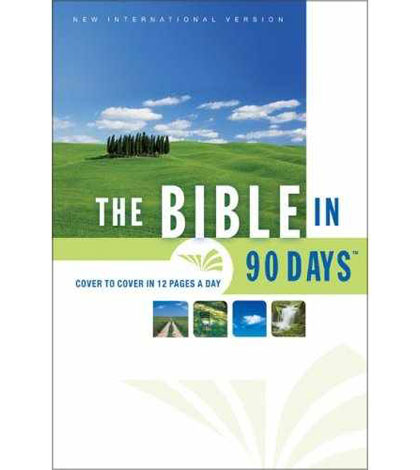Bible in 90 Days Week 8
Isaiah: a prophet, talking not just about the future but speaking the word of God to the people. There was a fair amount of turmoil during his time. Book has a number of themes, did any themes standout? People again stiff-necked and being bad.
When they talk about worshipping other gods, why was God angry? Was it the disobedience or the fact they were worshipping other gods? Reminded of Abraham’s willingness to sacrifice Isaac – it seems cruel God would command someone to do that but maybe in the context of reading about people actually sacrificing their children to other gods, maybe God had asked Abraham to do that, not only to test his obedience, but also when he stopped Abraham it was to distinguish the Living God from the other gods people worshipped. God seems to be saying, “follow me — you’ve seen the things I can do – both in damage and greatness.” And that when people do abide by me, see what God can do. Discussion of the fact the other “gods” are not real and incapable of doing anything but there was the one story when Elijah does battle with other priests of Baal.
Concern about the fact that there continues to be total annhilation for people who go against God, including children and babies who are innocent – portrays a vengeful as opposed to peaceful God. But maybe it’s a situation not of direct punishment but God basically saying “ok, if you want to do it your way, so be it” and there’s consequences to doing that.
Did God ever regret giving people free will? God gave us free will and we choose whether to listen to him. But, in Genesis it could be read that we took freewill rather than having it given to us…we wanted to have free will and wisdom — so we took it. Maybe God doesn’t regret it but God deeply grieves the choices we’ve made and continue to make.
- Striking parts of reading included:
- Isaiah Chapter 40: “Comfort, comfort my people, says your God…A voice of one calling: In the wilderness prepare the way for the Lord…” Beautiful and shows a different side of God. Tone in Isaiah also seems to change, possibly demonstrating there is a different writer. The passage in Chap. 40 is also believed to refer to John the Baptist.
- Confused as to what may come when reading Chapter 24– frightening description of future — “Lord’s Devastation of the Earth”
- Isaiah 25:8 “he will swallow up death forever…” prophecy in the far future. But then, later Isaiah refers to Israel’s exile in Babylon — so the book seems to jump back and forth in terms of when things may happen and timing.
- Later chapters in 50s — more comfort…focus on the suffering Servant to come who will bring redemption.
- References to Gentiles and other people to come to God. For example, in Isaiah 49:6. We did read earlier about conversions. This becomes issue in new church later. Paul in New Testament opened the church to non-Jews.
- Isaiah 53:6-7 – powerful. Reference to Jesus. One mentioned it took her to the cross where nothing is said and Jesus is taking all of this for us and yet the people still haven’t gotten it. Like Jeremiah’s use of the Rekabites in Jeremiah 35 as an example – their ancestor has told them to follow certain instructions – no wine, don’t build homes etc… and they followed his instructions and Jeremiah points out – why then can’t people follow God’s instructions.
- Isaiah 56:3-4 eunuchs included — could be LBGT. Think of life the eunuchs were able to live — safety of closeness to royalty. Well clothed. And in Esther the confidant.
- The Composer Handel took Isaiah and wrote The Messiah — the musical work.
- Isaiah also introduces imagery of a woman in refer to God in Isaiah 49: 14-15.
- In Jeremiah – one part that suggests God can change His mind.
What is the purpose of this Book in this position in the Bible — follows Song of Songs. It is like another review. Placing Isaiah first and then Jeremiah makes sense chronologically. Jerusalem hasn’t fallen yet but Jeremiah is right in the middle of it. Also a lot more prophecies in Isaiah it seems.
One indicated that she found herself asking – when there are references to a Servant or Savior – who are they talking about? We as Christians look back and see Jesus, but from the perspective of that time — who is he talking about — is it someone during his own time? Thinking through the lenses of the followers of the Way when Jesus died and wondering how to keep the movement alive and they see these scriptures and refer to them.
It may be good to view Bible as a gate not a fence — a gateway to understanding and seeing God. John the Baptist was thought to be the Messiah but he clarified he was not. In some Jewish traditions — others are thought to be who according to them fit the mold better than Jesus because they were strong leaders and warriors…they were looking for someone to free them from the bonds of Roman oppression. Perhaps people who are being constantly battered by neighbors — would look to a physical conqueror versus someone whose message was of peace and love.
- There were a number of precursor messages that have been quoted or referred to in the New Testament
- Turn the other cheek Isaiah 50:6.
- In Isaiah 58:6 (hungry and needy) which reminded one of the message during Ash Wednesday service — why give up something? Offerings don’t matter? Why are you fasting? (See Isaiah 58:4-7).
- Jeremiah 7 (Den of robbers)
Isaiah is the prophet Jesus quotes the most. In order of Old Testament books that Jesus quotes the top 4 most frequent are: Psalms (1st), Deuteronomy, Isaiah, and Exodus (4th).
One person pointed out that he was intrigued by the different translations – Isaiah 66:9, for example, he looked to see how the New Century Version translated the same verse and that translation struck him more than that of the NIV.


